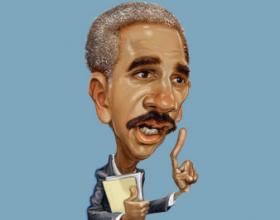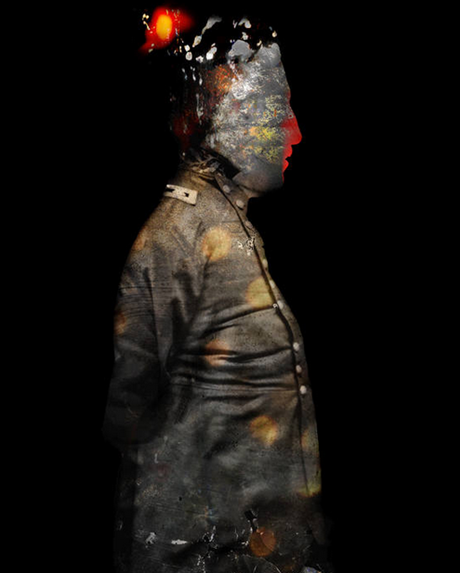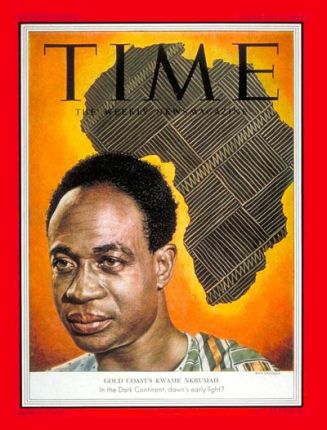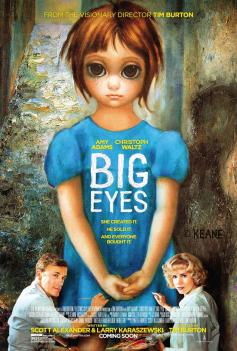
I would be lying if I said that I was surprised at the faux outrage generated by Attorney General Eric Holder’s “controversial” remarks concerning American racial relations. For some segments of our society, the only thing controversial about it was the fact he was willing to say it on camera. I wondered if those so offended by his choice of words actually ever cared to fully understand and/or empathize with what he truly meant, or were they more so agitated with being called a mean name. The Black Question did not begin days before the civil war nor did it end days after civil rights; the question of race–or better what to do with those of inferior race—has pervaded American society down through the generations going through its natural seasonal cycles. For the purpose of this short essay, I will define cowardice as follows: political cowardice may be present when we have a clear and prescient understanding of a potentially detrimental societal flaw, but rather than resolve the issue we remain completely devoid of the political willpower to reach resolution due to prejudice, fear, thrift, apathy, general demagoguery or self-preservation. If this is what Holder meant by cowardice then I can confidently back up his claim with proper historical evidence.
In the earliest days of the Union, Thomas Jefferson understood just how much the peculiar institution of slavery could impact a free society. Jefferson’s line of reason was pragmatic; a democratic society cannot thrive with despotic institutions. For Jefferson, the savage nature of slavery trained the nation’s youth to be quite frankly, savage. If Children were morphed into despots at home, how could they uphold justice in public? In fact, it was common for politicians and the social critics of the day to invoke the idea of supernatural interference, that is, the idea that in place of our own stalemate that God himself would eventually intervene and normally with vengeance. Jefferson invoked this principle when he fearfully stated in letter that “I tremble for my country when I reflect that God is just, that his justice cannot sleep forever.” Early in his life, Jefferson shifted blame for slavery on George III. In his first draft of the declaration of independence, Jefferson boldly claimed that it was the King who “waged cruel war on human nature itself” and that the Crown had violated “the most sacred right to life and liberty in the persons of a distant people who never offended him, captivating and carrying them into slavery in another hemisphere.” The Continental Congress, to Jefferson’s horror, decided against including this bold statement in the declaration thus “mutilating” the document to quote the man himself.
Did the venerated first Congress commit an act of political cowardice? Everyone knew the evils of slavery. Everyone knew and understood that the question would eventually have to be resolved, but as Jefferson scholar John C. Miller observed, “the inclusion of Jefferson’s strictures on slavery and the slave trade would have committed the United States to the abolition of slavery.” Quite simply, the issue of slavery was one that the continental congress lacked the will to take on. Later in his career and eventually into the presidency, Jefferson grew more uncertain over the question of race and inclusion. He even decided against freeing his personal slave and sometime lover Sally Hemming under the dubious premise that “to free her was to lose her.” President Jefferson could never quite pull himself to finish off the institution despite having an early opportunity to do so. He toyed with the idea of relocation and repatriation either to Africa or Saint Domingue, where the “climate” may have proved more suitable for blacks. Thomas Jefferson, the man of letter, the man of the pen, and father of the declaration of independence proved incapable of imagining a life for blacks in America. He concluded this; “But, as it is, we have the wolf by the ear and we can neither hold him, nor safely let him go. Justice is on one scale and self-preservation in the other.” Although bold in his subject matter, Jefferson arrived at stalemate; never fully resolved over the issue of race. Political cowardice did not reserve itself to blacks in the early republic; Native Americans also faced the challenge of inclusion. The question of whether to incorporate Natives into American Society (if properly westernized) or to relocate the civilized tribes further into the interior plagued executives and justices through the decades. President Jackson’s treatment of Natives during his administration was not only cowardly but sadistically hostile with catastrophic consequences. There are many who would point to America’s Civil War as a vindication in bravery. Sadly, it was none other than our own political cowardice which led us slowly and steadily to war. Dred Scott, the Fugitive Slave Act, Taney choosing preservation over justice on the court, nullification; which is nothing more than local exceptionalism, and the general fear of a multiracial society, fertilized the fall out. The seeds of war are planted years, sometimes decades, before its terrible fruit ripens. Indeed, even immediately following the War, the complete lack of dedication and political will to rebuild a fractured southern society on behalf of President Andrew Johnson and his successors dragged the “question” further into the century. This cowardice directly enabled Jim Crow to seize the South by the throat for another century.
Frankly, it is astonishing to see some of America’s most bold, daring and larger than life like public figures cower in the face of race. Theodore Roosevelt tipped the scale of self-preservation when he was unwilling to invite his friend and respected confidant Booker T. Washington back to the White House after being admonished by his peers. Much to First Lady Eleanor’s dismay, FDR fell short of guaranteeing blacks equal opportunity under the New Deal programs for fear of public opinion. Self-preservation trumped justice yet again when, in 1957, Southern Democrats sabotaged an early attempt at civil rights legislation. Martin Luther King’s plea for President Eisenhower to use the “weight” of his office in order to mitigate white backlash in the South fell largely on ambivalent ears, after all, the President could not imagine “what another speech would do about the thing now.” Ironically King would show exactly how powerful a speech could be in the hands of one who is bold and imaginative. The Civil Rights movement is worthy of further analysis. Although the culmination of a century of prior procrastination and cowardice, did the movement signify a change in how each of the federal branches would confront the ages old question? President Kennedy’s national address on the subject was worded very carefully by speech writer Ted Sorenson, who meaningfully chose to use the words “to act, boldly” in order to give each citizen “enforceable” rights “to be served in facilities which are open to the public.” However, just as the Continental Congress had “mutilated” Jefferson’s bold initial draft, Kennedy also chose to omit the words “boldly” and “enforceable” from his actual address thus tipping the proverbial scales of self-preservation and justice.
Fate would pass the question on to Lyndon Johnson, the same man who only years prior had played an integral role in sabotaging the Civil Rights Act of 1957. Was justice more important than self-preservation? Was it worth potentially losing the entire South to the opposition? Would our nation, like so many times before in its young history, cower in the face of the old question which had emasculated some of our greatest leaders? Despite the all too familiar seductive whisper of self-preservation and Johnson’s personal belief in the death of his political career, the scales were for once tipped in favor of justice. The Supreme Court under the bold Earl Warren followed suit in Heart of Atlanta v. United States which upheld the constitutionality of Title II of the new Civil Rights Act. It is worth noting that Judge Hugo Black, who would write one of the concurrences for the case, believed firmly in the maxim that a good judge is one who is continually aware of and has a sense of history when ruling, so that he may be ever aware of the mistakes made in the past. His idea of jurisprudence is certainly admirable. After so many dashed hopes and decade after decade of political cowardice and procrastination, it seemed for many minorities that justice had finally been realized. Minorities had gained “enforceable” rights and were recognized completely and officially under the Constitution.
If this is what Attorney General Holder meant when he stated that “as it comes to issues of race in America” we are “cowards” then there is no one of serious intelligence or with a sense of history who could disagree. Perhaps race should not have been his sole choice of words. No one had any delusions about the unique and peculiar history which has brought each of us together and in under sometimes dubious circumstances. We have however proven that when our own perceived self-perseveration is under duress, the short and easy path can sabotage the very same principles that we profess to believe in. Who is American? Who is worthy of being “American”? Who is able to fully participate in our democratic system of government? Who is able to receive fair and equal treatment under the law? Who is protected by the rights promised under the constitution? Perhaps the crack in our glorious windshield occurred the day the first African slave arrived on these shores; or perhaps when the first European did. Maybe Jefferson, in his unresolved self, personified the Revolution and of what our Union will always be; unresolved. To be a coward is much different than making politically and socially cowardly choices; but make no mistakes, cowardice is present when those same choices are committed in the name of one’s own political self-preservation over our national ideals. The scales between justice and our own political, prejudicial, regional, or economic interests are continually ebbing and flowing. The urge to push off pressing political problems continues to haunt us; the urge to undermine our system of government for our own gain is even stronger. We will find success by staying bold and proactive. We can avoid cowardice by remaining willing to do what is necessary, when it is necessary, and until however much it is necessary to see our challenges through. We cannot omit self-evident truths from our discussion or rhetoric. The rights to Life, Liberty and the pursuit of Happiness are inalienable and certainly not reserved for those of whom we subjectively deem worthy. Those rights are bestowed upon us naturally regardless of race or creed, gender or sexuality, and to compromise on those ideals is cowardice. History has proven that cowardly pursuits often return to us with compounded fury namely when they are allowed to fester and grow. Justice never runs counter to each of our self-interest even if it benefits causes that we do not particularly care about. Why; because we each would prefer to receive the same treatment. Justice is not some opposing force which at times threatens our national or political preservation; to the contrary, it is rather the necessary ingredient to our preservation.







